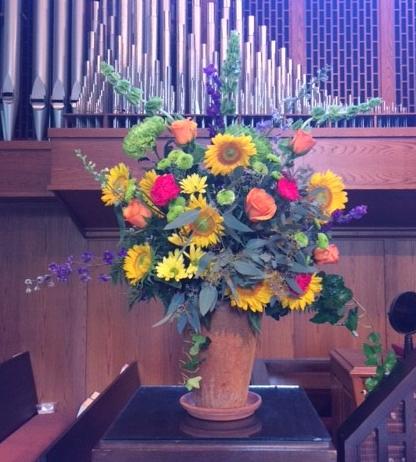For three Sundays in a row this summer we listen to a collection of Jesus’ parables from the pen of St. Matthew. They all describe the kingdom of God in ways that sometimes seem elliptical, difficult to comprehend and sometimes quite straight forward. They are always about the kingdom of God and they always require thought. Jesus wants us to get inside the parable and stay there a while in order to grasp the fullness of its meaning. And the meaning has to do with God’s realm, the world of everyday living that is obedient to God’s law of love.
Good poetry is the same in that we are invited to get inside of the poem and sit with it a time. Both parables and poems are metaphor, a figure of speech that in some indirect or disguised way points to similarities between two unalike ideas. Thus, the kingdom of God is like yeast that a woman puts in with the flour until it is leavened; which is to say that the kingdom of God works in secret; it is known best by its results.
Good poetry works the same way. I am reminded of the role that everyone plays in the realization of God’s kingdom by one of my favorite poems by the Jesuit priest James Manley Hopkins. It can be found by its first line, “As kingfishers catch fire…” But its power lies in the last few lines:
Í say móre: the just man justices;
Kéeps gráce: thát keeps all his goings graces;
Acts in God’s eye what in God’s eye he is-
Chríst-for Christ plays in ten thousand places,
Lovely in limbs, and lovely in eyes not his
To the Father through the features of men’s faces.



